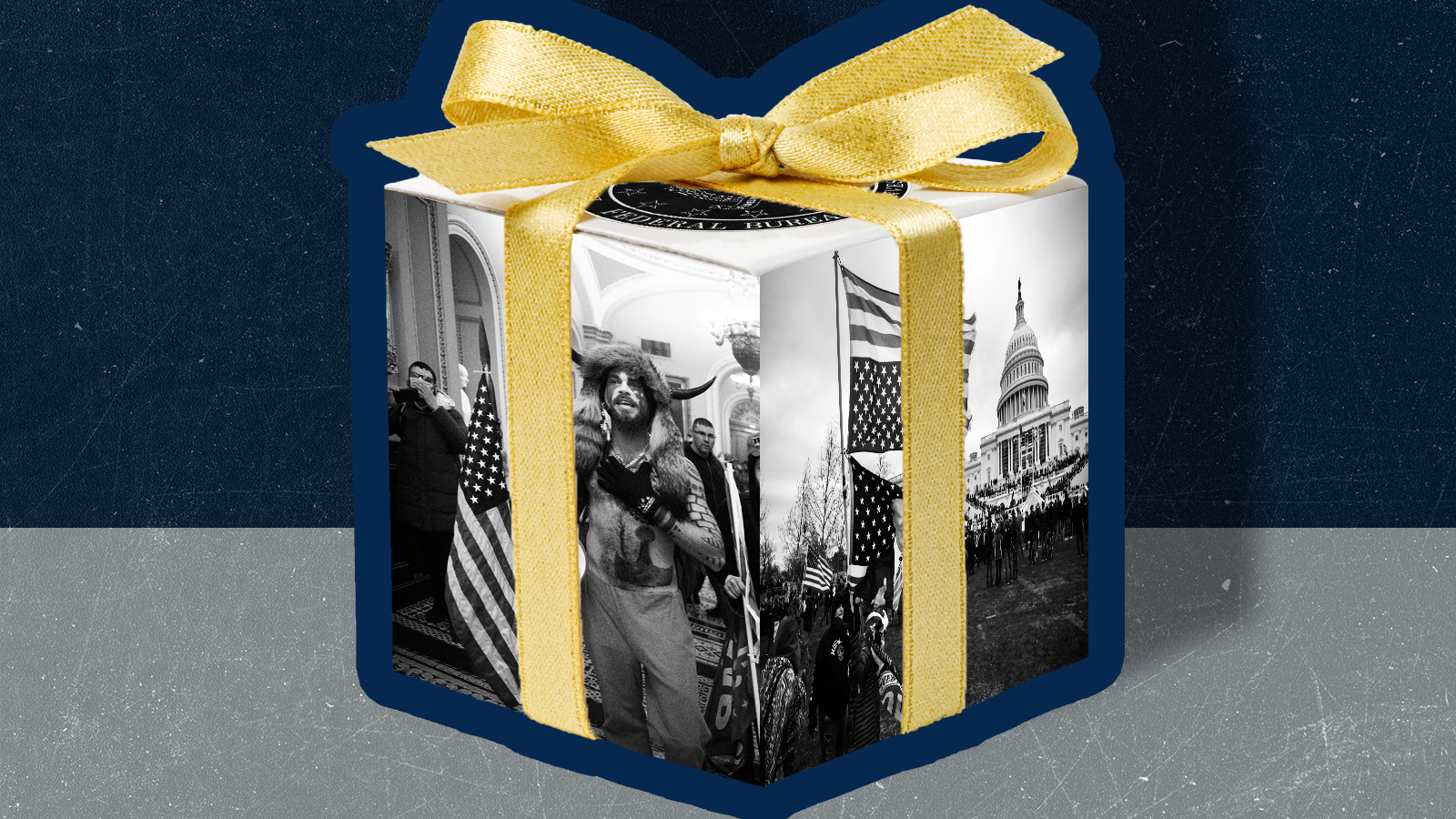The Jan. 6 'plot' that wasn't


A free daily email with the biggest news stories of the day – and the best features from TheWeek.com
You are now subscribed
Your newsletter sign-up was successful
The FBI has found "scant" evidence the Jan. 6 insurrection was the result of an organized plot, Reuters reported on Friday.
"Ninety to ninety-five percent of these are one-off cases," an anonymous former official said of the nearly 600 people who have been arrested for their involvement in the attempt to stop the certification of the 2020 presidential election. "Then you have five percent, maybe, of these militia groups that were more closely organized. But there was no grand scheme with Roger Stone and Alex Jones and all of these people to storm the Capitol and take hostages."
If true, that doesn't mean the events of Jan. 6 weren't dangerous, both to members of Congress and to the health of American democracy. What it does suggest is that the narrative of what happened that day is pretty straightforward and that it played out very publicly: Then-President Donald Trump lied for two months that the election had been stolen from him, a lot of people believed his lies, and then they (violently) acted accordingly.
The Week
Escape your echo chamber. Get the facts behind the news, plus analysis from multiple perspectives.

Sign up for The Week's Free Newsletters
From our morning news briefing to a weekly Good News Newsletter, get the best of The Week delivered directly to your inbox.
From our morning news briefing to a weekly Good News Newsletter, get the best of The Week delivered directly to your inbox.
There didn't need to be a secret conspiracy. Instead, it sounds more like self-radicalization as a mass phenomenon.
The term "self-radicalization" has been used in recent years to describe the underlying causes of lone-wolf terror attacks like the gunman who killed 49 people at Orlando's Pulse nightclub, or the Pensacola shooter who killed three at the Naval Air Station in 2019. Dylann Roof, who killed nine parishioners at a Charleston, S.C. church, was also described in such terms. In these cases, the phrase roughly describes individuals who were motivated to violence after seeking out and absorbing radical ideologies over the Internet and through social media. What is Jan. 6, if not a similar phenomenon — after a pandemic year in which millions of people had increasingly turned to the Internet for community and consolation — only with all the wolves gathered in a single, very important location for the same purpose?
None of this gets Trump off the hook, of course. Despite what the term suggests, self-radicalizers never truly act on their own. They need inspiration. The people who came to Washington D.C. on Jan. 6 did so at Trump's invitation, and then marched to the Capitol at his behest. He didn't have to plot with anybody — he just had to rile up his followers, then point them in the right direction.
A free daily email with the biggest news stories of the day – and the best features from TheWeek.com
Joel Mathis is a writer with 30 years of newspaper and online journalism experience. His work also regularly appears in National Geographic and The Kansas City Star. His awards include best online commentary at the Online News Association and (twice) at the City and Regional Magazine Association.
-
 Corruption: The spy sheikh and the president
Corruption: The spy sheikh and the presidentFeature Trump is at the center of another scandal
-
 Putin’s shadow war
Putin’s shadow warFeature The Kremlin is waging a campaign of sabotage and subversion against Ukraine’s allies in the West
-
 Media: Why did Bezos gut ‘The Washington Post’?
Media: Why did Bezos gut ‘The Washington Post’?Feature Possibilities include to curry favor with Trump or to try to end financial losses
-
 Kurt Olsen: Trump’s ‘Stop the Steal’ lawyer playing a major White House role
Kurt Olsen: Trump’s ‘Stop the Steal’ lawyer playing a major White House roleIn the Spotlight Olsen reportedly has access to significant US intelligence
-
 Trump’s EPA kills legal basis for federal climate policy
Trump’s EPA kills legal basis for federal climate policySpeed Read The government’s authority to regulate several planet-warming pollutants has been repealed
-
 House votes to end Trump’s Canada tariffs
House votes to end Trump’s Canada tariffsSpeed Read Six Republicans joined with Democrats to repeal the president’s tariffs
-
 Bondi, Democrats clash over Epstein in hearing
Bondi, Democrats clash over Epstein in hearingSpeed Read Attorney General Pam Bondi ignored survivors of convicted sex offender Jeffrey Epstein and demanded that Democrats apologize to Trump
-
 Judge blocks Trump suit for Michigan voter rolls
Judge blocks Trump suit for Michigan voter rollsSpeed Read A Trump-appointed federal judge rejected the administration’s demand for voters’ personal data
-
 US to send 200 troops to Nigeria to train army
US to send 200 troops to Nigeria to train armySpeed Read Trump has accused the West African government of failing to protect Christians from terrorist attacks
-
 Grand jury rejects charging 6 Democrats for ‘orders’ video
Grand jury rejects charging 6 Democrats for ‘orders’ videoSpeed Read The jury refused to indict Democratic lawmakers for a video in which they urged military members to resist illegal orders
-
 Big-time money squabbles: the conflict over California’s proposed billionaire tax
Big-time money squabbles: the conflict over California’s proposed billionaire taxTalking Points Californians worth more than $1.1 billion would pay a one-time 5% tax
